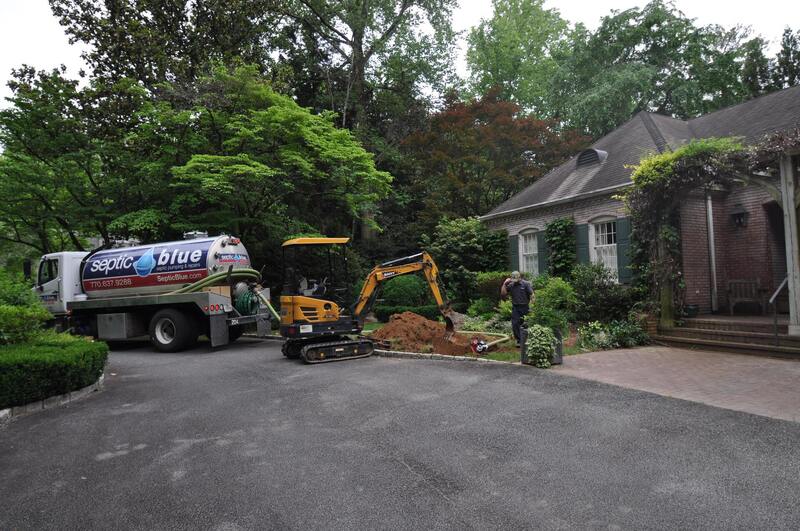Menu
"WE NOT ONLY PUMP YOUR TANK - WE CLEAN IT!"
WE NOT ONLY PUMP YOUR TANK - WE CLEAN IT! Free Septic System Inspection ($99 Value)
Free enzyme treatment - Financing Available
"WE NOT ONLY PUMP YOUR TANK - WE CLEAN IT!"
WE NOT ONLY PUMP YOUR TANK - WE CLEAN IT! Free Septic System Inspection ($99 Value)
Free enzyme treatment - Financing Available
Septic systems have several components that make them the reliable on-site wastewater treatment facilities that they are. The septic tank, drain field, anaerobic bacteria, and baffles are just some of the players. If property owners want to avoid septic system issues, then these parts will have to be protected – but how?
 Oct 25, 2024
Oct 25, 2024
In this brief article brought to you by Septic Blue, we offer some tips on keeping your septic system functioning well. If you ever need a reputable septic company to take care of repairs, maintenance, or even a replacement, then the uniformed professionals at Septic Blue are here to help.
Owning a home comes with…
Before we get into tips, it helps to understand the basics of your septic system. The system consists of several key components:
This is not a complete list, but if one of these parts fails or becomes overburdened, your septic system could back up or fail.
Over time, the sludge and scum in your septic tank build up and can overflow into the drain field if they’re not removed. One of the easiest ways to avoid septic system problems is to have your tank pumped on a regular basis.
How often you need septic tank pumping in Saint Cloud depends on several factors, including the size of the tank and the number of people in your household. A good rule of thumb is to have it pumped every 3 to 5 years.
One of the most common causes of septic issues is flushing down things that don’t break down easily or at all. Here’s a quick rundown of what should never go down your toilet or drain:
Stick to biodegradable toilet paper and avoid putting anything else down the toilet. Your septic system will thank you! If you’re concerned about the damage done, consider scheduling a septic tank cleaning to clear away gunk, muck, and debris.
Your septic system is designed to handle a certain amount of wastewater. Overloading it with excess water can overwhelm the system. Reduce your water usage to avoid backups or drain field saturation. Here are some tips:
Your drain field plays a critical role in treating wastewater and it’s awfully sensitive to pressure. The weight of vehicles can compact the soil and damage the pipes, for instance. In addition to avoiding parking or driving over it, make sure to keep the drain field safe from tree roots and water runoff.
Whether you need routine maintenance or urgent septic tank repair, the uniformed septic specialists at Septic Blue are happy to help. Call or message us at any time of the day to get in touch with a member of our team.